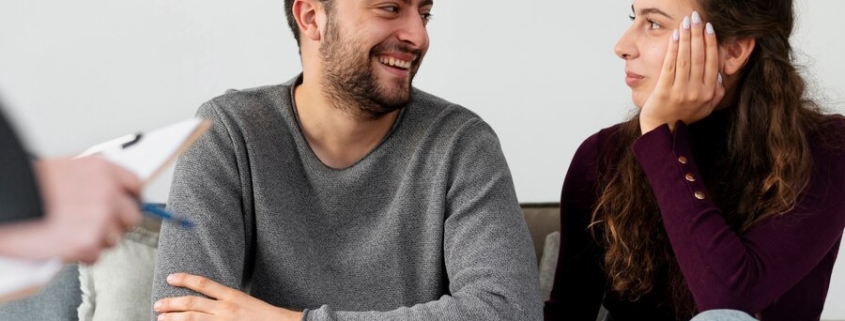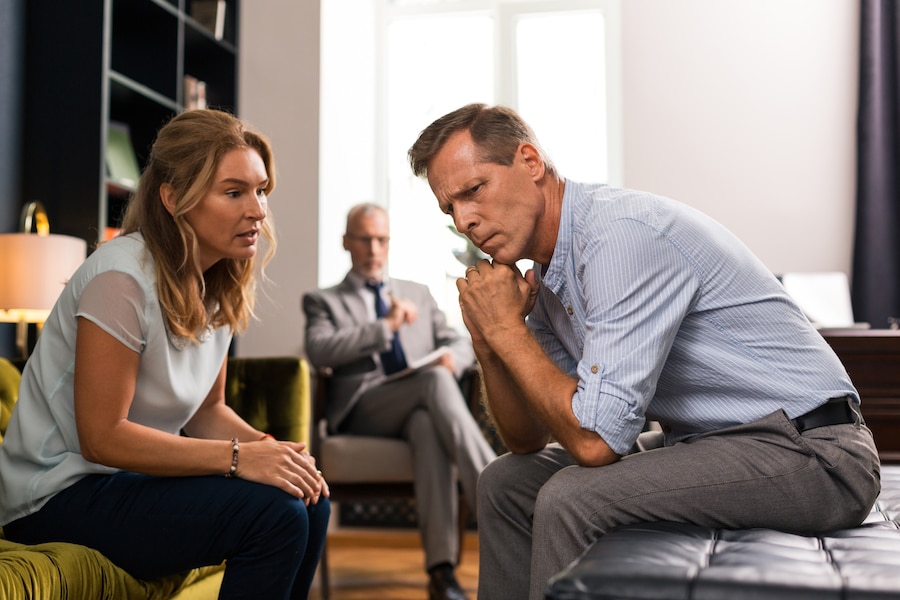When love is tested by the trials and tribulations of life, it can sometimes feel like it’s on the brink of shattering into irreparable pieces. For many couples, the journey from brokenness to reunion is a tumultuous one, filled with heartache, doubt, and uncertainty. However, amidst the darkness, there exists a beacon of hope – couples rehab. Couples Rehab is a transformative experience that has the power to not only mend fractured relationships but also strengthen the bond between partners in ways they never thought possible.
In this article, we delve into the profound impact of couples rehab on one couple’s relationship, exploring the challenges they faced, the growth they experienced, and the profound love that was reignited through the journey of healing. Join us as we uncover the raw, emotional, and ultimately uplifting story of how couples rehab saved their love
Couples Rehab Services
The Decision to Seek Couples Rehab
For many couples, the decision to seek couples rehab is not an easy one. It often comes after a long and painful journey of struggling to navigate through a sea of unresolved conflicts, communication breakdowns, and emotional distance. The realization that their relationship is in need of professional help can be both daunting and liberating.
Recognizing the Need for Help
The first step in the decision to seek couples rehab is often the recognition that the relationship is in trouble. This realization may come after a major argument, a betrayal, or a series of ongoing disagreements that seem insurmountable. It takes courage to acknowledge that the relationship needs outside intervention, and that the couple may not be able to resolve their issues on their own.
Overcoming Stigma and Resistance
One of the biggest hurdles in deciding to seek couples rehab is overcoming the stigma associated with therapy. Many people still hold onto the outdated belief that therapy is only for those who are “crazy” or that seeking help is a sign of weakness. Overcoming this stigma requires a shift in mindset to view therapy as a proactive step towards strengthening the relationship, rather than a last resort for troubled couples.
Researching and Choosing the Right Program
Once the decision to seek couples rehab is made, the next step is researching and choosing the right program. It is important for couples to find a program that aligns with their specific needs and goals. Factors to consider may include the expertise of the therapists, the types of therapy offered, the duration of the program, and the overall approach to healing relationships.
Making the decision to seek couples rehab is a pivotal moment in a relationship’s journey towards healing and growth. It requires courage, vulnerability, and a willingness to confront difficult truths. However, for many couples, taking this step is the beginning of a transformative process that can ultimately lead to a deeper connection and a renewed sense of love and understanding.
The Journey Through Couples Rehab
Embarking on the journey through couples rehab is a transformative experience that can breathe new life into a struggling relationship. It is a process that requires dedication, vulnerability, and a willingness to confront deep-seated issues. Here, couples delve into the heart of their problems, guided by experienced therapists and counselors who provide the tools and support needed to heal and grow together.
Individual and Joint Counseling Sessions
One of the cornerstones of couples rehab is the combination of individual and joint counseling sessions. These sessions offer a safe space for each partner to explore their own thoughts, feelings, and behaviors, as well as to address any past traumas or unresolved issues that may be contributing to the relationship challenges. By gaining a deeper understanding of themselves and each other, couples can begin to build empathy and compassion, laying the groundwork for effective communication and mutual respect.
Learning Effective Communication Strategies
Effective communication is often cited as a key ingredient in healthy relationships, yet it can be one of the most challenging skills to master. In couples rehab, partners are taught practical strategies for expressing their needs, listening actively, and resolving conflicts constructively. Through role-playing exercises, guided discussions, and homework assignments, couples can practice these new communication techniques in a supportive environment, gradually fostering a stronger and more open dialogue.
Addressing Underlying Issues and Trauma
Many relationship struggles stem from underlying issues or past traumas that have gone unaddressed. Couples Rehab in Orange County provides a platform for partners to confront these difficult topics, with the guidance of trained professionals who can facilitate healing and resolution. By shining a light on the root causes of their conflicts, couples can begin the process of healing together, paving the way for a more solid and resilient bond.
Navigating the journey through couples rehab is a profound and rewarding experience that can lead to profound transformation and renewed connection. By committing to this process, couples can emerge stronger, more connected, and better equipped to face the challenges that lie ahead.

Life After Couples Rehab
After completing a couples rehab program, the real work begins as you transition back to your everyday life. The tools and strategies you learned during rehab will serve as the foundation for rebuilding and strengthening your relationship. Here is a closer look at what life after couples rehab may entail:
Implementing Healthy Relationship Habits
One of the key aspects of life after couples rehab is implementing the healthy relationship habits you learned during your time in the program. This may involve setting boundaries, practicing active listening, expressing gratitude, and engaging in activities that promote connection and understanding. By consistently applying these habits in your daily interactions, you can create a more positive and fulfilling relationship dynamic.
Continuing Support and Follow-Up Care
Recovery from relationship challenges is an ongoing process, and it is essential to continue seeking support and follow-up care after completing couples rehab. This may involve attending individual or couples therapy sessions, participating in support groups, or engaging in activities that promote emotional well-being. By staying connected to resources and professionals who can help you navigate challenges, you can maintain the progress you made during rehab and continue to grow as a couple.
Rebuilding Trust and Intimacy
Rebuilding trust and intimacy is often a central focus of life after couples rehab. This may involve open and honest communication about past hurts and betrayals, setting realistic expectations for progress, and actively working to nurture emotional and physical intimacy. By prioritizing trust-building activities and fostering a deeper sense of connection, you can create a stronger and more resilient bond with your partner.
In conclusion, life after couples rehab is a journey of continued growth, healing, and renewal. By implementing healthy relationship habits, seeking ongoing support, and prioritizing trust and intimacy, you can navigate the challenges of rebuilding your relationship with newfound strength and resilience. Remember that the journey to healing is ongoing, and with dedication and commitment, you can create a love that is stronger and more enduring than ever before.
How Couples Rehab Saved Our Love
Embarking on the journey of couples rehab is not an easy decision, but for many, it has proven to be the turning point in their relationships. As we’ve explored in this article, seeking help through couples rehab involves overcoming obstacles such as stigma, resistance, and fear. However, it is also a transformative experience that can lead to profound healing and growth.
Throughout the process of couples rehab, individuals not only learn valuable communication skills but also gain a deeper understanding of themselves and their partners. By addressing underlying issues and trauma, couples are able to break free from destructive patterns and forge a stronger, more resilient bond.
Life after couples rehab is a continuation of the work begun in therapy. Implementing healthy relationship habits, seeking ongoing support, and actively rebuilding trust and intimacy are essential steps in maintaining the progress achieved during rehab. It is a journey that requires dedication, patience, and a willingness to confront challenges head-on.
In the end, couples who have gone through rehab together often emerge with a renewed sense of connection and commitment. They have learned to navigate the complexities of their relationship with greater empathy and understanding, laying the foundation for a future filled with love, growth, and mutual support. While the road to recovery may be long and arduous, the rewards of a revitalized relationship make it all worthwhile.”

FAQs
1. What does “From Broken to Reunited” signify in the context of Couples Rehab’s programs?
“From Broken to Reunited” reflects the transformative journey that couples experience at Couples Rehab. It signifies the process of healing, reconciliation, and rebuilding of love and trust within the relationship, facilitated by our comprehensive treatment programs.
2. How does Couples Rehab help couples transition from brokenness to reunification?
Couples Rehab helps couples transition from brokenness to reunification by providing specialized therapy, support, and tools to address underlying issues contributing to their relationship struggles and addiction. Through counseling and experiential activities, couples learn to rebuild trust, communication, and intimacy.
3. What sets Couples Rehab apart in saving relationships and reuniting couples?
Couples Rehab stands apart in saving relationships and reuniting couples by offering tailored programs that address both individual and relational aspects of addiction. Our holistic approach focuses on healing the couple as a unit, rather than just treating addiction in isolation.
4. How does Couples Rehab’s approach foster reconciliation and renewal of love?
Couples Rehab’s approach fosters reconciliation and renewal of love by providing a safe and supportive environment where couples can address unresolved issues, learn healthier communication skills, and rebuild trust and intimacy through shared experiences and therapy.
5. Can Couples Rehab’s programs benefit couples with deeply fractured relationships?
Yes, Couples Rehab’s programs can benefit couples with deeply fractured relationships by providing intensive therapy, guidance, and support to address complex issues and rebuild the foundation of their relationship. Our experienced team specializes in working with couples facing significant challenges.
6. How does Couples Rehab’s therapy sessions help couples navigate challenges and save their love?
Couples Rehab’s therapy sessions help couples navigate challenges and save their love by providing a structured space for open communication, conflict resolution, and emotional healing. Therapists guide couples in identifying and addressing underlying issues while teaching effective relationship skills.
7. Are LGBTQ+ couples welcome at Couples Rehab’s programs?
Yes, LGBTQ+ couples are welcome at Couples Rehab’s programs. We provide an inclusive and affirming environment where all couples can receive the support and guidance they need to save their love and overcome addiction together.
8. How can couples access Couples Rehab’s programs to save their love and rebuild their relationship?
Couples can access Couples Rehab’s programs by contacting our admissions team for a confidential consultation. We will assess their needs, discuss available programs, and guide them through the process of beginning their transformative journey to save their love and rebuild their relationship.
9. What role does support play in Couples Rehab’s approach to saving relationships?
Support plays a crucial role in Couples Rehab’s approach to saving relationships by providing couples with the resources, guidance, and encouragement they need to succeed in rebuilding their love. Our team is dedicated to supporting couples every step of the way on their journey to reunification.
10. How does Couples Rehab celebrate the success of couples who have saved their love and rebuilt their relationship?
Couples Rehab celebrates the success of couples who have saved their love and rebuilt their relationship by acknowledging their resilience, commitment, and personal growth. We provide ongoing support and encouragement as couples continue to nurture their renewed love and connection.



